You might already know where Canada’s name came from, but many other nations also have fascinating stories behind their names. Here is a very interesting map for those who want to learn a bit more about the different countries around the world.
There are 193 countries recognized by the United Nations, and honestly here at Flytrippers, we want to visit all of them at least once because each and every one of them has something unique. And that’s precisely why we’ll keep spotting low prices to as many different destinations as we can on our cheap flight deals page.
The country name translation map
The most passionate travel enthusiasts will at least recognize the name of each one of the 193 countries, even the most obscure ones (including the less-known ones I’ve visited like Brunei, Eswatini, or Moldova). But it’s doubtful that anyone knows what the literal translation of these names is.
That’s why I find this map really cool.
The Australian website Credit Card Compare used multiple sources to put together all the country name translations on one very interesting map. The literal or historical meaning.
(Credit cards can earn you a lot of free travel, so while our own current Canadian credit card ranking just shows you the best offers but doesn’t currently allow you to compare side-by-side like the Australian website… that’s a feature we’ll add in 2021.)
The map is not perfect: many disagree with some of the interpretations, like for example with Kazahkstan. The sources are at the end of the post.
But in all cases, it’s a great way to learn interesting factoids quickly by glancing at one informative map. You can therefore quickly become more knowledgeable about the countries you’ve visited… or those you dream of visiting soon.
So here is the literal meaning of every country’s name continent by continent and then the complete map (and the link to the full-size image for each continent is under each map to make reading it easier)!
North America
(full-size map of North America)
South America
(full-size map of South America)
Europe
Asia
Oceania
Africa
The complete world map
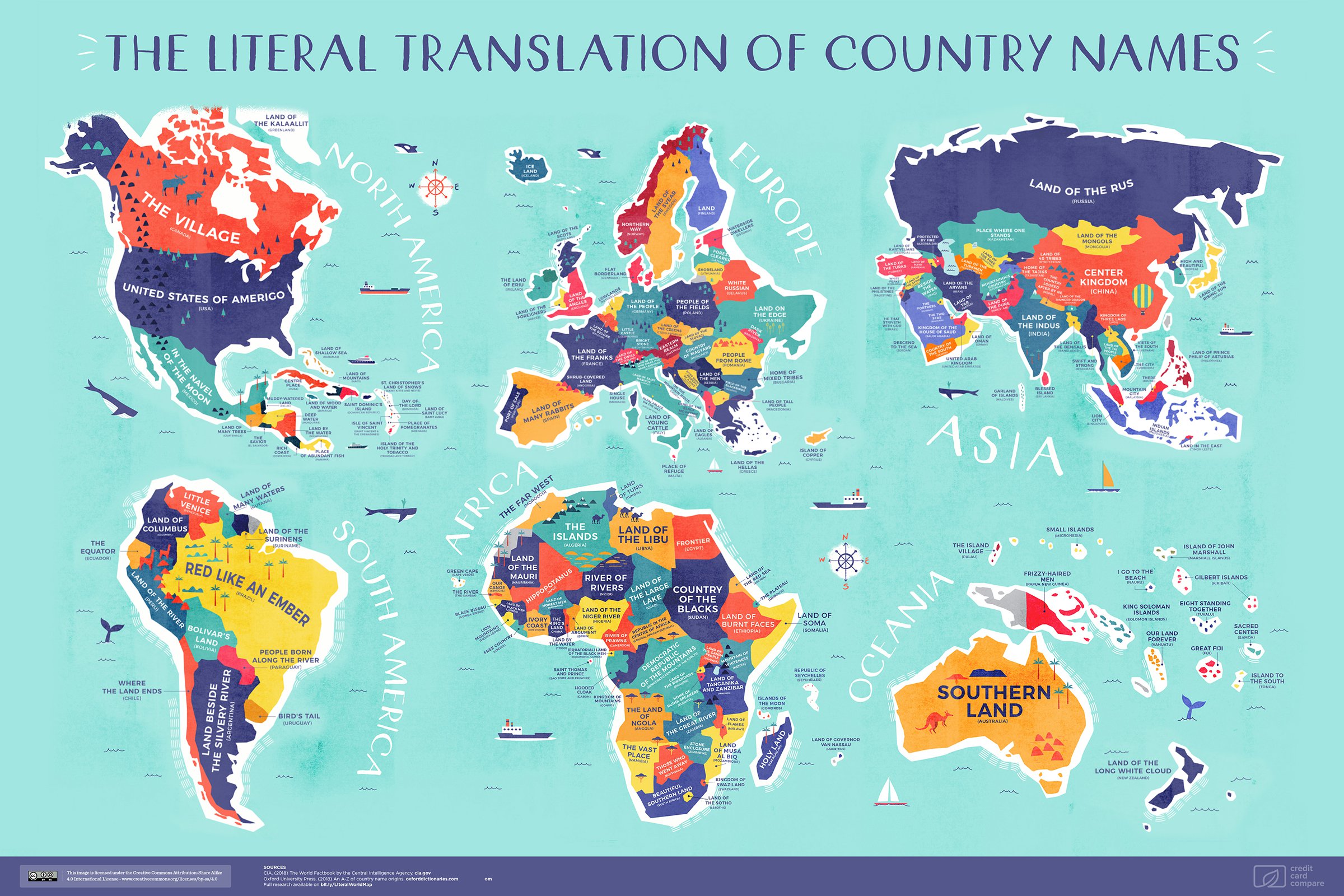
Want to get more content to discover awesome destinations?
Summary
This is a very interesting map to learn a little bit more about what each country’s name actually means.
Which translation surprised you the most? Let us know in the comments below!
Explore awesome destinations: travel inspiration
Learn pro tricks: travel tips
Discover free travel: travel rewards
Featured image: the map (image credit: Credit Card Compare Australia)
Initial publication: April 5th, 2018 (Updated May 12th, 2019)
Advertiser Disclosure: In the interest of transparency, Flytrippers may receive a commission on links featured in this post, at no cost to you. Thank you for using our links to support us for free, we appreciate it! You allow us to keep finding the best travel deals for free and to keep offering interesting content for free. Since we care deeply about our mission to help travelers and our reputation and credibility prevail over everything, we will NEVER recommend a product or service that we do not believe in or that we do not use ourselves, and we will never give any third-party any control whatsoever on our content. For more information on our advertiser disclosure, click here.

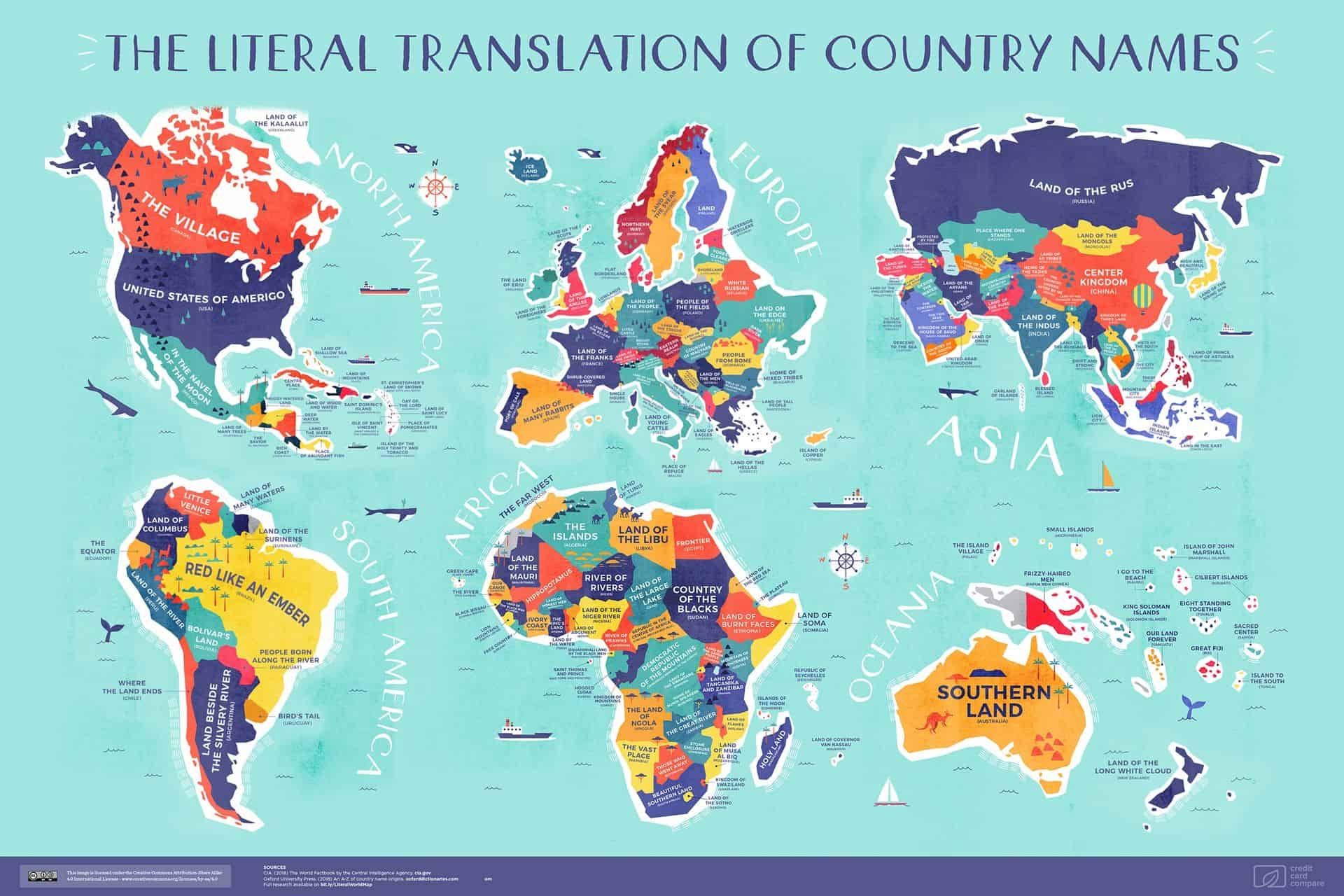
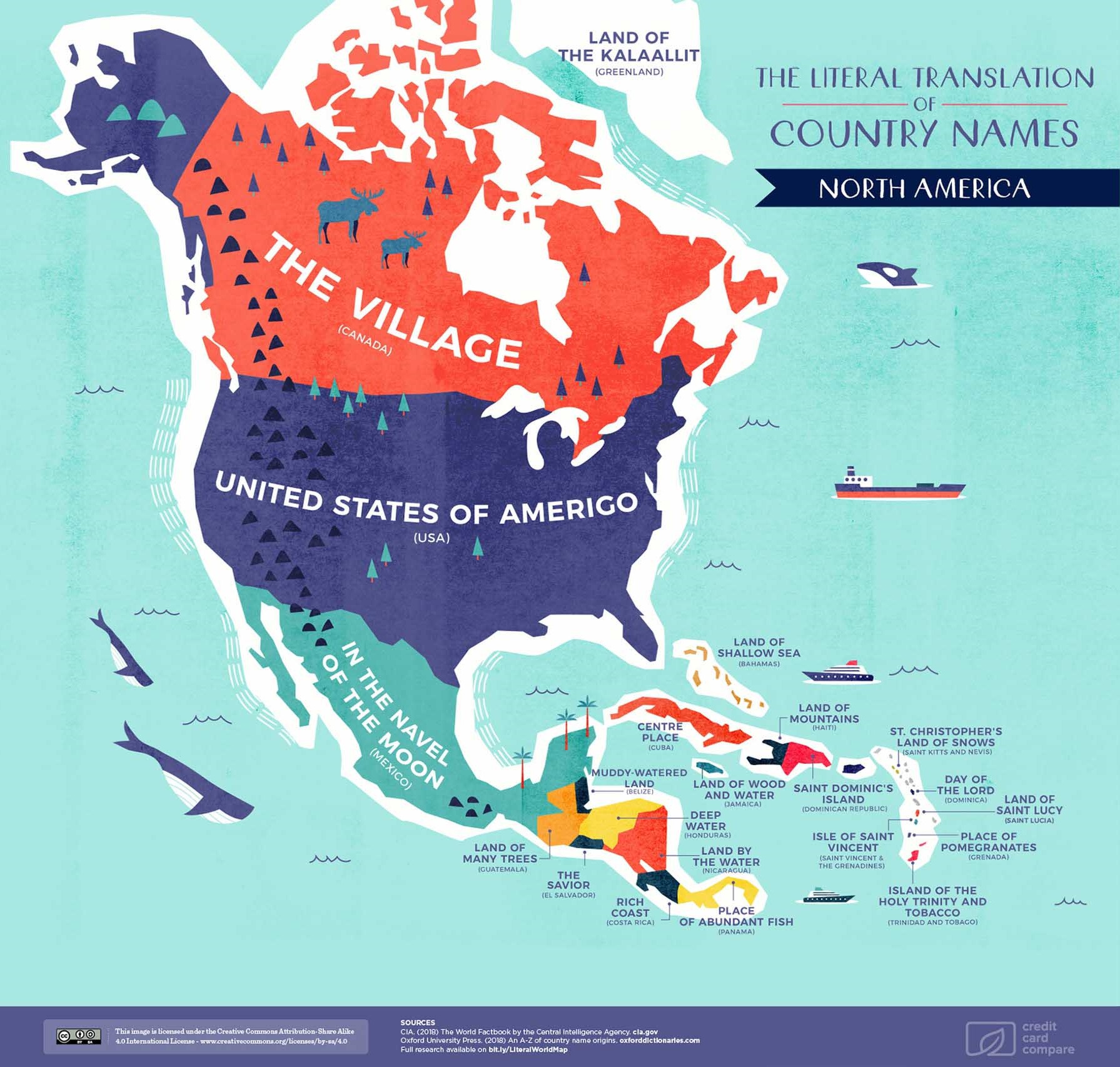
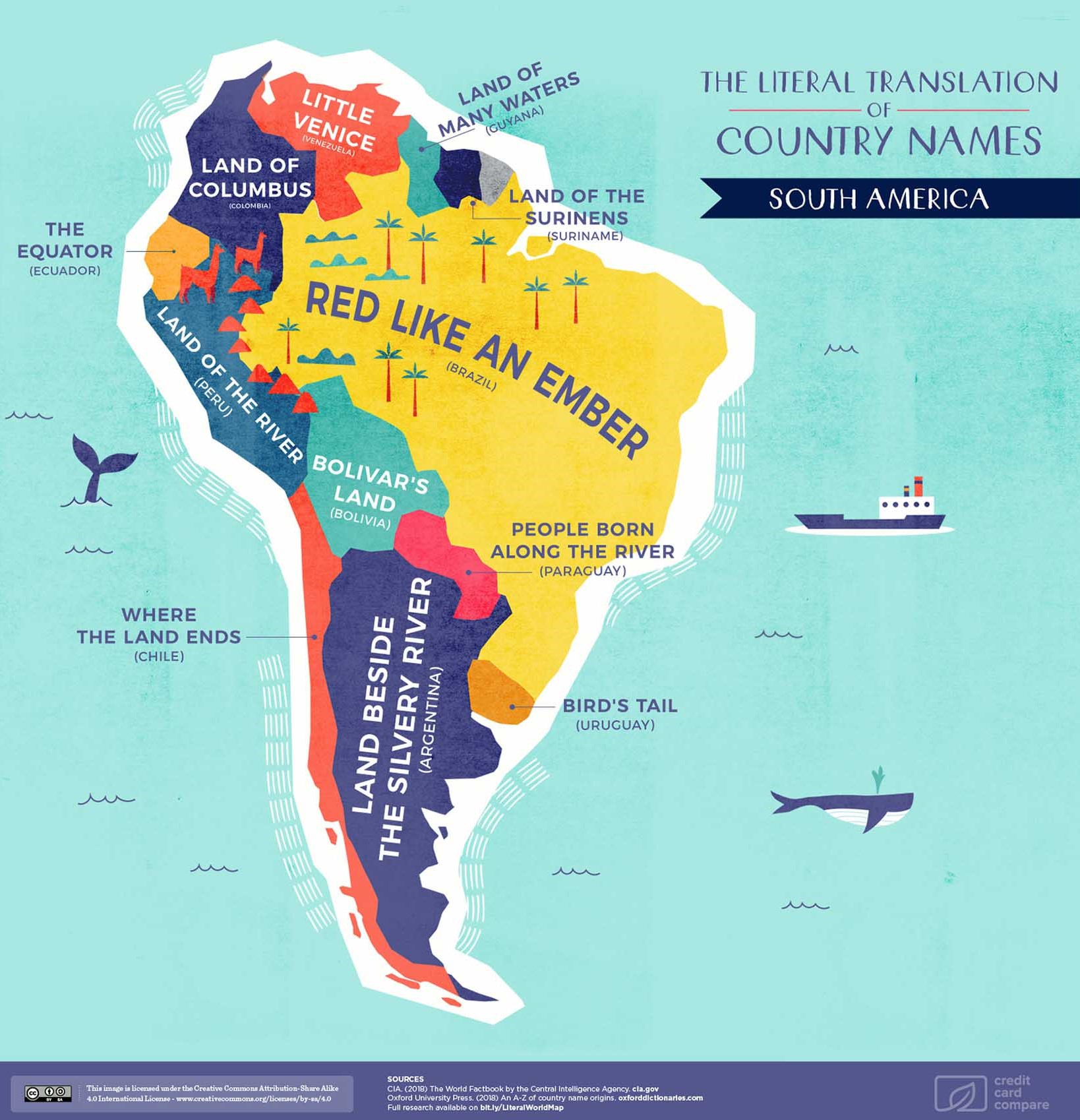
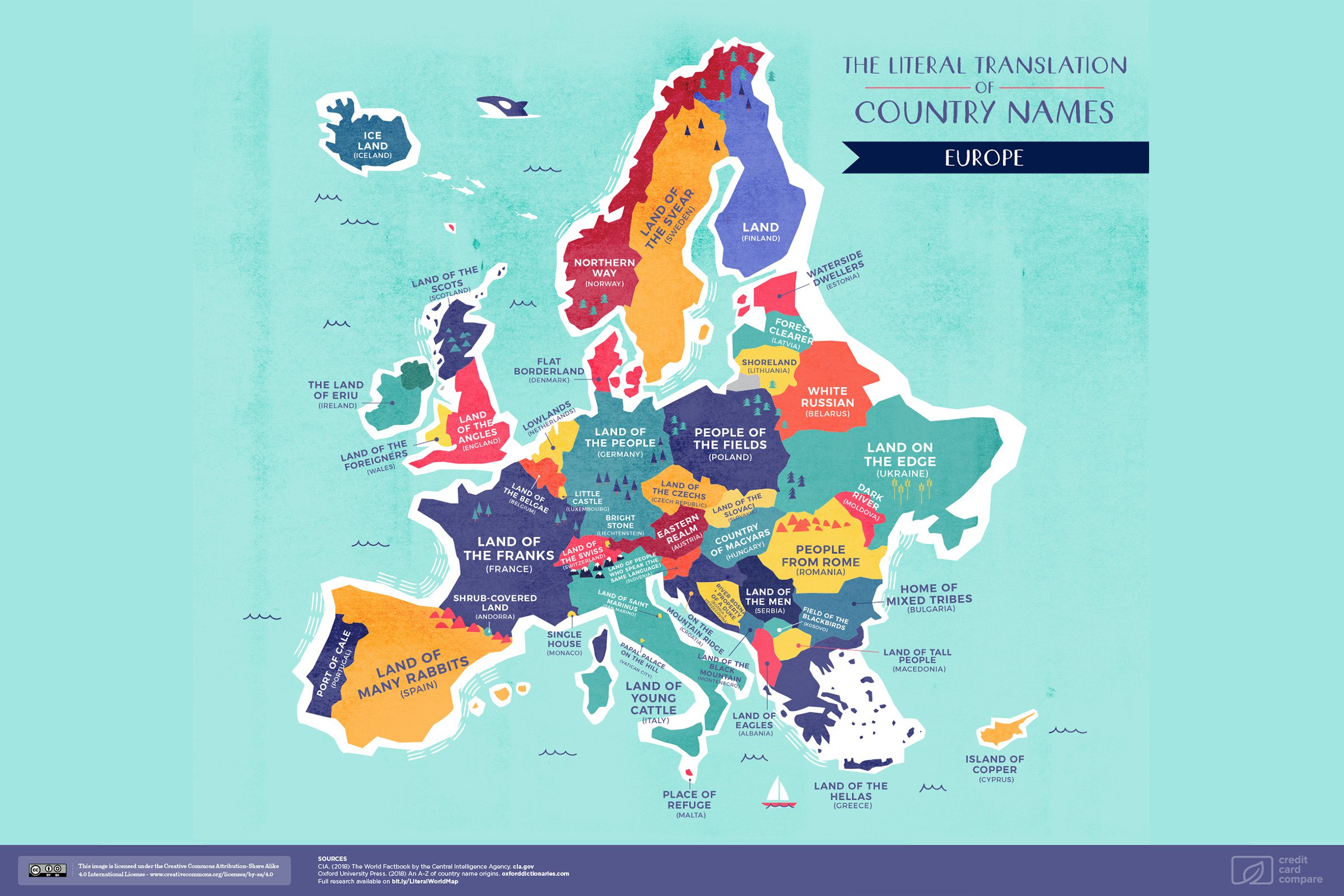
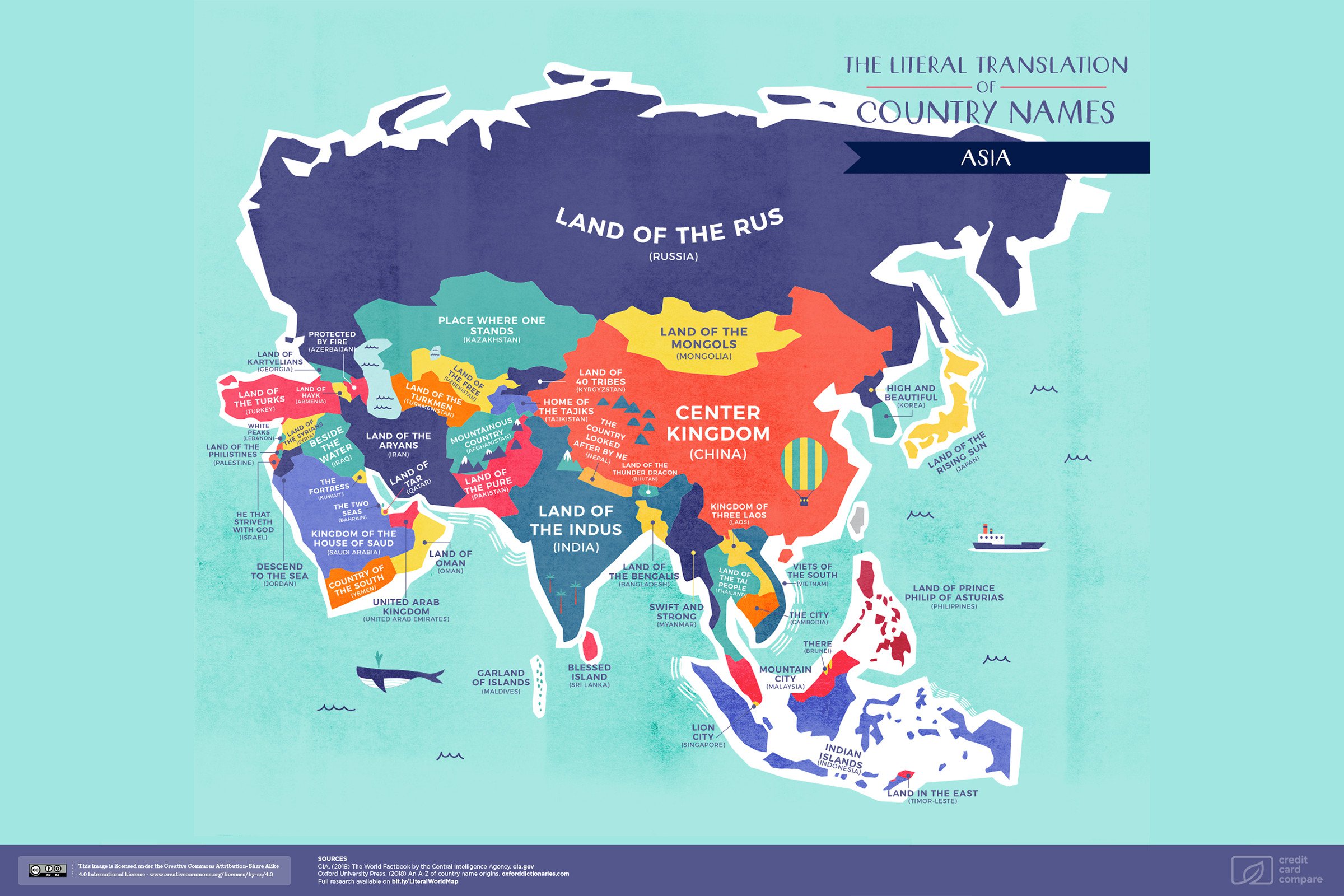
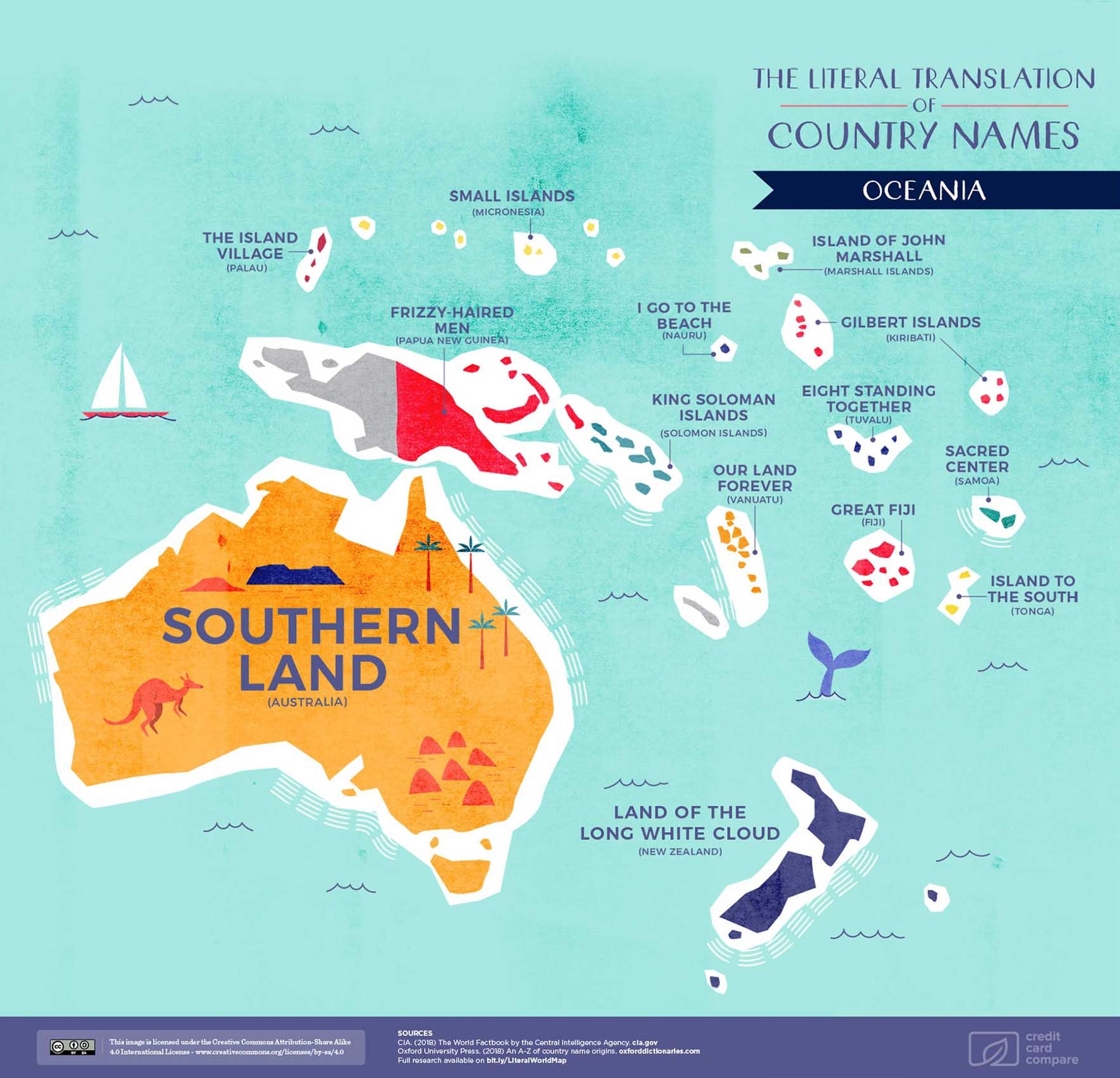
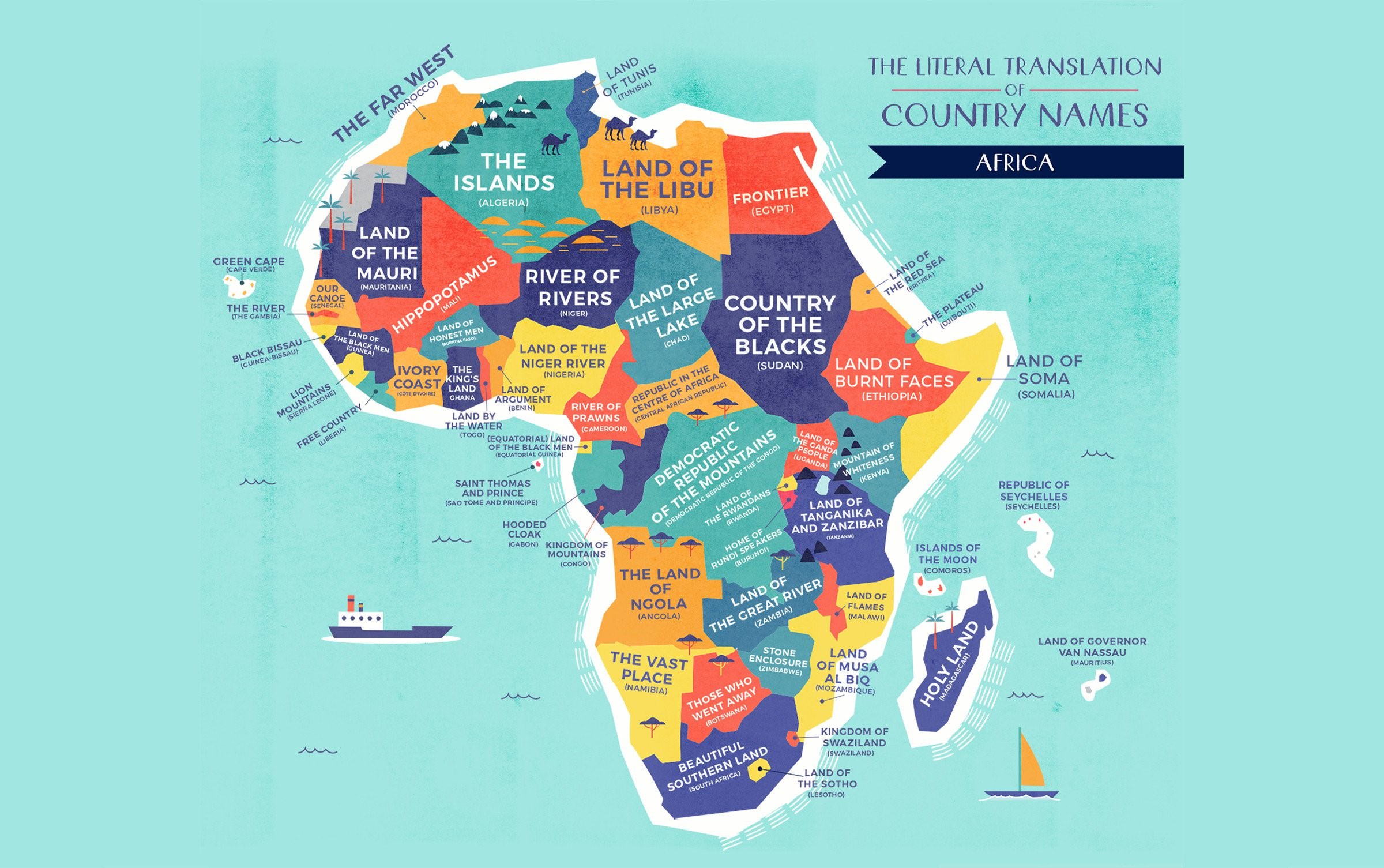
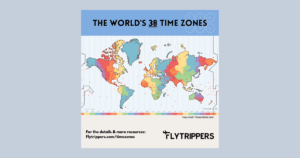
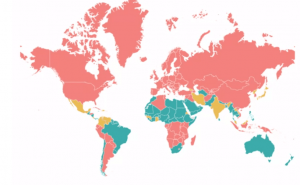

Ethiopia doesn’t mean the land of burnt faces . Eth(ኢት) – means GOD (እግዚአብሔር ፤ አምላክ ) , Yop (ዮጵ) means yellow pure Gold ” which is only found in Ethiopia , in total it means Yellow gold which is given as a present to GOD.
Kazakhstan doesn’t meat land where one stands. ‘Stan’ means land of in Persian. ‘Kazakh’ means to wander. So the closest definition is land of the wanderer
Oh well, it seems there are indeed a few inaccuracies. Thanks for pointing that one out!
If I remember correctly the Philippines was named after Prince Philip II of Spain. Don’t recall a Prince of Asturias in my history class.
Quite possible, it seems there are indeed a few inaccuracies. Thanks for pointing that one out!
Where is Bermuda?
The map only includes countries unfortunately :S
For most of the countries, the reference uses the actual, literal meaning of the nowdays name, but the original actual name given by the natives and the corresponding meaning before European invaders arrived, is rarely provided. i.e « Australia », meaning land of the South, but what was the name before the Westerners’ discovery/invasion? Thanks
That’s a good point! One way to deep-dive on the names is to read the Wikipedia page for a country, it usually has an exhaustive section about the etymology and history! Thanks for following us:)